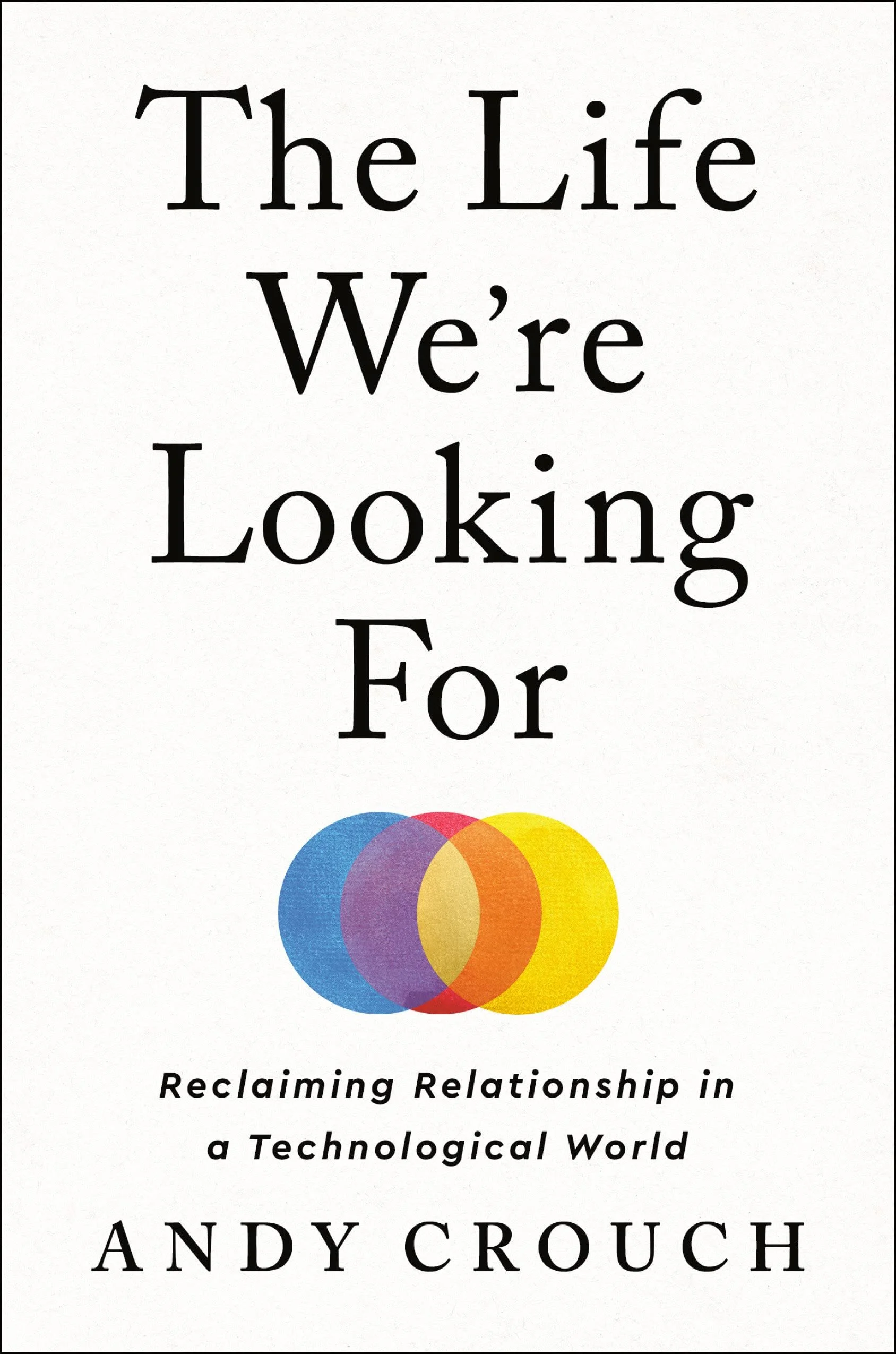The Life We’re Looking For
Andy Crouch’s new book, The Life We’re Looking For: Reclaiming Relationship in a Technological World (Convergent), begins with this statement: “Recognition is the first human quest.” Crouch observes that from our first moments on earth, we’re looking for a face that is looking back at us. We have an innate need to be seen, acknowledged, recognized, known. And this recognition can only come from another person. Indeed, “before we knew to look for a mirror, we were looking for another person’s face.”
We need recognition as newborns and we need it at every stage of our lives. But while we tend to live our lives surrounded by people, it’s easy to lose sight of the mysterious gift of actual persons. And a lot of that has to do with the ubiquity of technology in our lives—technology that promises to connect us, but is actually powerless to make us more human, to make us less lonely.
“To be a person is to be made for love. This is both the indelible fact of who we are and the great adventure of each of our lives,” Crouch writes. “And it is precisely this central task—becoming the relational beings we are meant to be—that is so desperately difficult in our technological, impersonal world.”
That’s the central task of our lives, and the central aim of The Life We’re Looking For. Anyone who has read his earlier work will know that Crouch has an infectiously curious mind, and in these explorations he adeptly weaves history and science together with theology and sociology. While he’s sober-minded and clear-eyed about the downsides of the powerful technologies that shape our world, don’t mistake him for a Luddite. His philosophical and practical reflections on our technological world are imaginative and generative, not fearful.
Crouch’s writing is crisp and clear. It also stirs the soul. On more than one occasion, I was moved to tears. Like the extended passage at the end of chapter 11, in which Crouch invites us to imagine a community where every person—and especially the most vulnerable among us—is valued and cared for wholeheartedly.
Such a community, I’ve got to admit, is hard to find. It will not come about by accident. It takes intentionality and time. Lots of us will want nothing to do with a community like this—that is, until life teaches us that we need it ourselves. No wonder such a community is so rare. Rare, but worth cultivating. Rare, but worth sacrificing for. If recent experience has taught us anything, it is that the stakes couldn’t be higher.
“And when a plague came,” Crouch writes in the conclusion to that passage, “this community might be patient enough to take the small steps that it could, not just to protect its own members’ lives but to have the margin and resilience to care for others caught up in suffering and sorrow. Such a people might even remember the times of plague, famine, and war that are the inevitable accompaniments of history as times when blessing was somehow present, not because of an absence of suffering but because of an abundance of grace.”
Amen. Lord, may it be so, both in us and among us. As persons in search of a face, persons who need to feel felt, we’ll never stop needing a community like that, as long as we each shall live.
